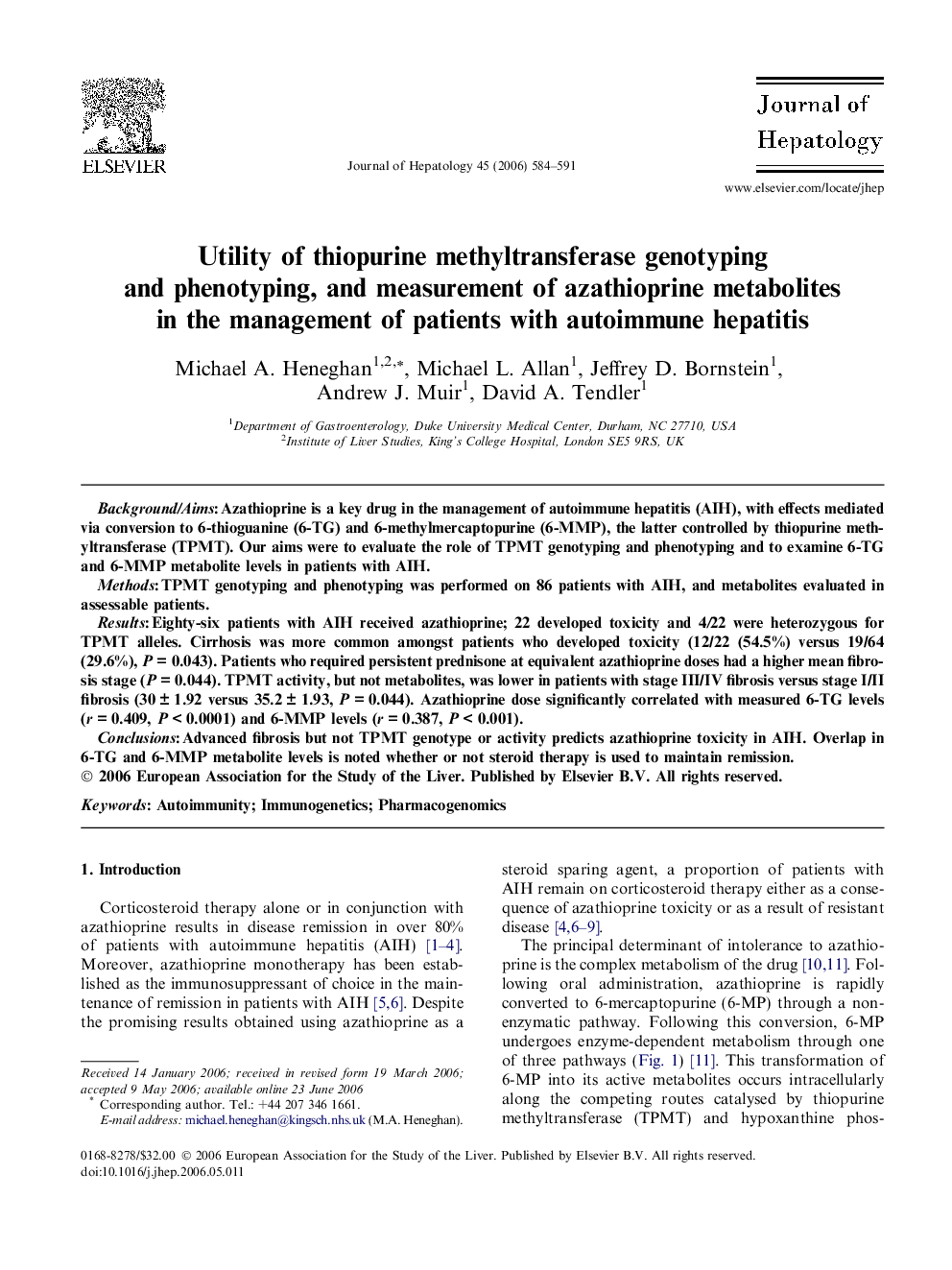| Article ID | Journal | Published Year | Pages | File Type |
|---|---|---|---|---|
| 3314838 | Journal of Hepatology | 2006 | 8 Pages |
Background/AimsAzathioprine is a key drug in the management of autoimmune hepatitis (AIH), with effects mediated via conversion to 6-thioguanine (6-TG) and 6-methylmercaptopurine (6-MMP), the latter controlled by thiopurine methyltransferase (TPMT). Our aims were to evaluate the role of TPMT genotyping and phenotyping and to examine 6-TG and 6-MMP metabolite levels in patients with AIH.MethodsTPMT genotyping and phenotyping was performed on 86 patients with AIH, and metabolites evaluated in assessable patients.ResultsEighty-six patients with AIH received azathioprine; 22 developed toxicity and 4/22 were heterozygous for TPMT alleles. Cirrhosis was more common amongst patients who developed toxicity (12/22 (54.5%) versus 19/64 (29.6%), P = 0.043). Patients who required persistent prednisone at equivalent azathioprine doses had a higher mean fibrosis stage (P = 0.044). TPMT activity, but not metabolites, was lower in patients with stage III/IV fibrosis versus stage I/II fibrosis (30 ± 1.92 versus 35.2 ± 1.93, P = 0.044). Azathioprine dose significantly correlated with measured 6-TG levels (r = 0.409, P < 0.0001) and 6-MMP levels (r = 0.387, P < 0.001).ConclusionsAdvanced fibrosis but not TPMT genotype or activity predicts azathioprine toxicity in AIH. Overlap in 6-TG and 6-MMP metabolite levels is noted whether or not steroid therapy is used to maintain remission.
